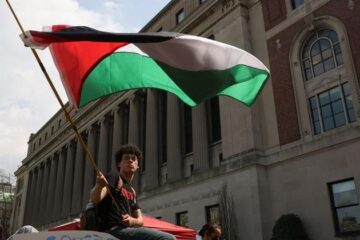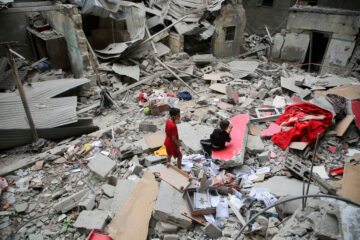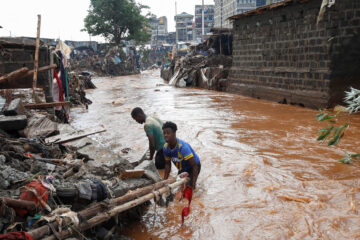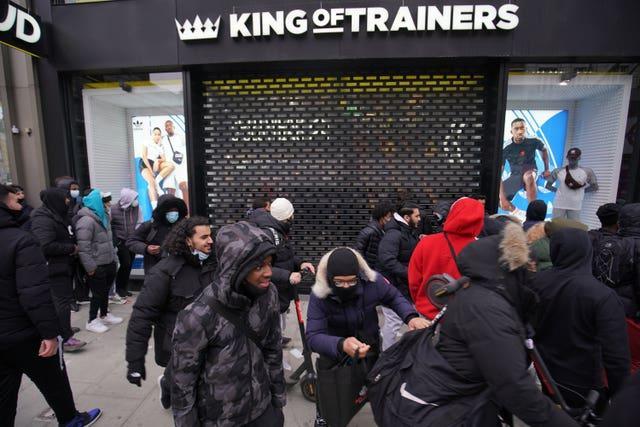Nigerians vote for new president, delays seen at some polling stations
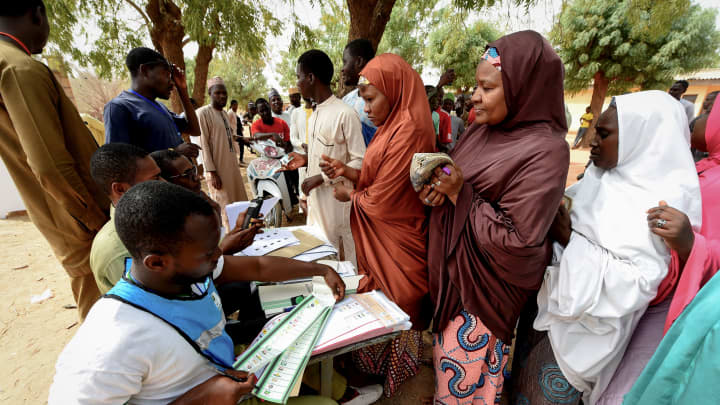 Women queue at a polling station to vote in the presidential and parliamentary elections, on February 23, 2019, in Daura, Katsina State, northwest Nigeria. Nigerians began voting for a new president on February 23, after a week-long delay that has raised political tempers, sparked conspiracy claims and stoked fears of violence. Some 120,000 polling stations began opening from 0700 GMT, although there were indications of a delay in the delivery of some materials and deployment of staff, AFP reporters said.
PIUS UTOMI EKPEI | AFP | Getty Images
Women queue at a polling station to vote in the presidential and parliamentary elections, on February 23, 2019, in Daura, Katsina State, northwest Nigeria. Nigerians began voting for a new president on February 23, after a week-long delay that has raised political tempers, sparked conspiracy claims and stoked fears of violence. Some 120,000 polling stations began opening from 0700 GMT, although there were indications of a delay in the delivery of some materials and deployment of staff, AFP reporters said.
PIUS UTOMI EKPEI | AFP | Getty ImagesNigerians started voting on Saturday to elect a successor to President Muhammadu Buhari, with many hoping the next leader will steer Africa’s most populous nation and biggest economy on a new course after years of worsening violence and hardship.
Polling stations were scheduled to open at 8:30 a.m. (0730 GMT), though Reuters reporters at several locations across the country saw some that were not ready. In northern Kano State, southern Bayelsa State and the federal capital Abuja, reporters saw queues of voters with no election officials in sight.
Reporters at one location in central Lagos, another in the city of Awka, in southeastern Anambra State, and one in the northeastern city of Maiduguri saw voting begin, though at other Lagos locations there were delays.
Buhari, a retired army general, is stepping down after serving the maximum eight years allowed by the constitution but failing to deliver on his pledge to bring back order and security across Nigeria, Africa’s top oil-producing nation.
The main candidates in the most wide open contest since the end of army rule in 1999 are two political veterans from the two main parties and a candidate from a minor party who opinion polls suggest has a chance thanks to support from young voters.
More than 93 million people are registered to vote for the next president and members of the National Assembly. Some 176,600 polling stations were scheduled to be open between 8:30 a.m. and 2:30 p.m. (0730 GMT to 1330 GMT).
Vote-counting will begin as soon as polls close and results will be posted outside polling stations. The final tally from the 36 states and federal capital Abuja is expected within five days of voting.
“I hope that whoever becomes president will alleviate the suffering of the masses. We are in (a) difficult time, transportation costs and food prices have tripled,” said Umar Abdullahi, a tea seller waiting to vote in the city of Kano.
The run-up to the vote was marred by violence, a pattern seen in previous Nigerian elections, with the killing of a senatorial candidate in the volatile southeast region on Wednesday the latest in a series of serious incidents.
The election comes as Nigerians are struggling to cope with a shortage of cash caused by a botched plan to swap old bank notes for new ones that has wreaked havoc on people’s daily lives and led to scenes of violence at banks and cash machines.
THREE MAIN CONTENDERS
The new president will also have to grapple with problems ranging from high inflation, deep poverty and energy shortages, to an Islamist insurgency in the northeast, industrial-scale oil theft in the south and rampant crime everywhere.
For the election, land borders were closed, soldiers were patrolling the streets in several states and movements were restricted in an effort by the authorities to boost security.
The main contenders in the race to succeed Buhari are former Lagos governor Bola Tinubu, 70, of the ruling All Progressives Congress, former vice president Atiku Abubakar, 76, of the main opposition Peoples Democratic Party, and former Anambra State governor Peter Obi, 61, of the smaller Labour Party.
Tinubu and Atiku, as he is known in Nigeria, are both political heavyweights with decades of networking behind them and bulging campaign coffers. Both Muslims, Tinubu is an ethnic Yoruba from the southwest and Atiku is a Fulani from the northeast.
Obi, a Christian from the Igbo ethnic group, has less of a political machine behind him but has used a slick social media campaign to generate huge enthusiasm among young voters, with some even calling themselves the “Obidients”.
Nigeria has a long history of electoral fraud and violence, though its polls have been getting gradually cleaner in recent cycles.
The Independent National Electoral Commission (INEC) says it has introduced new technology and procedures to ensure this election is free and fair, such as a Bimodal Voter Accreditation System (BVAS) that will identify voters using biometric data.
INEC says mobile phones are not permitted in voting booths because in the past people have used them to take photos of their ticked ballot papers to show to candidates who have offered to pay for their votes.
“The election will be free and fair. We didn’t have that before. They have computer, they have finger print, they have picturing. You can’t cheat now,” said Mohammed Aisha, a grocery shop owner waiting to vote in Lagos.
Despite such precautions, analysts have warned there were still risks from the dearth of cash, which could make hard-pressed citizens vulnerable to vote-buying by candidates, and a shortage of fuel that could make it hard for INEC to deploy staff and equipment to all areas.
SOURCE: REUTERS

